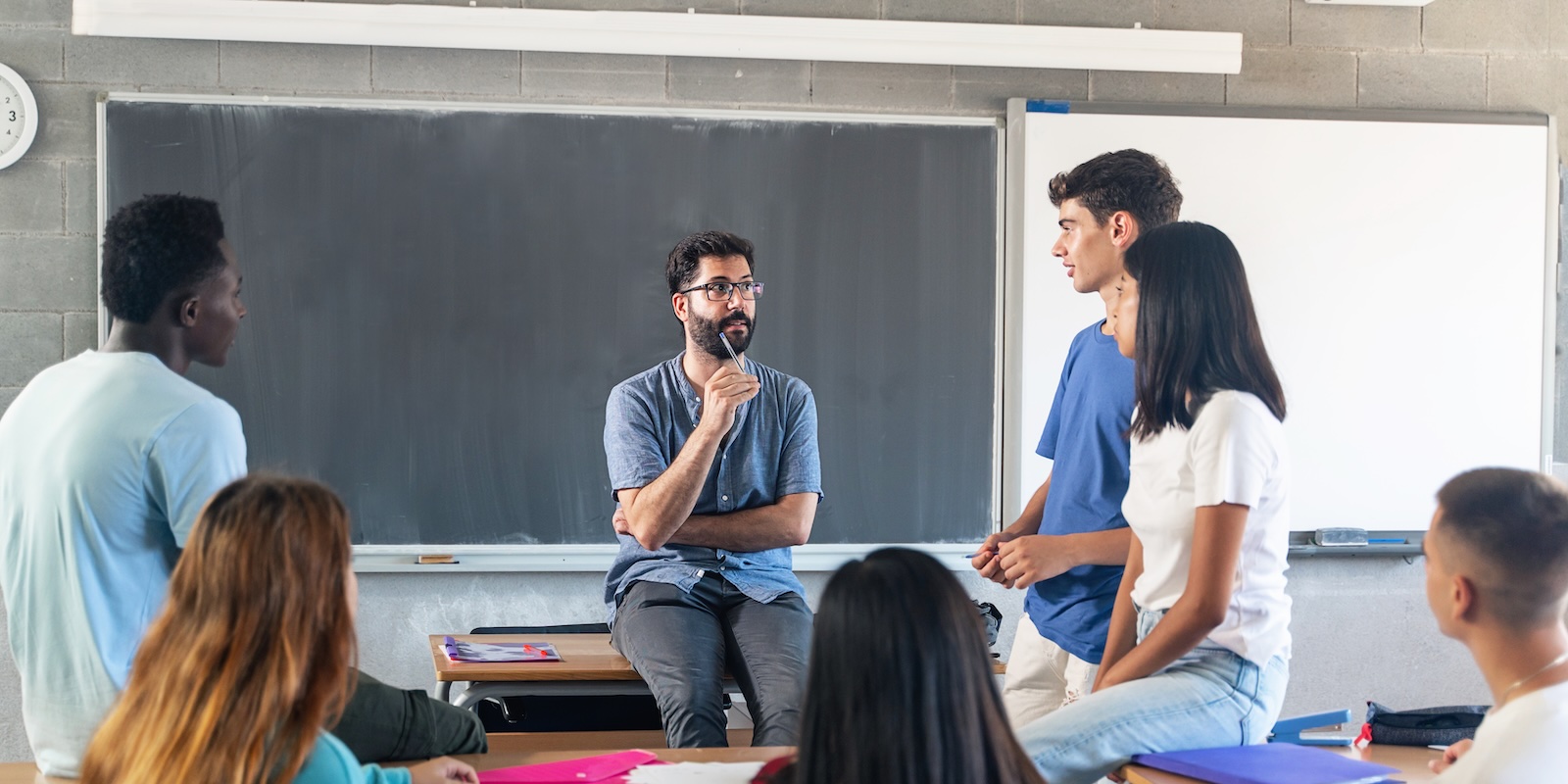Building a Student-Centered Team

Building a student-centered team in K-12 school? Knowing the student's story and what they need is essential to student success.
A common strategy that schools deploy to help students be successful is to create and maintain cross-functional teams of educators focused on ensuring the success of, often, a targeted subset of students. Student-centered teams are called a variety of things but they are often known as student support teams. Teachers, student services staff, administrators, parents, and sometimes professionals from the community come together to discuss academic and social-emotional issues that, most often, are advanced through a referral process. This convening provides a positive way to look at a student holistically and to ensure both a comprehensive and collaborative approach to student progress. As Helen Keller said, "Alone we can do so little; together we can do so much."
The agenda for these meetings tends to look the same in many schools and districts across the country. First, the data related to the concern are presented and discussed. Data may reflect a host of issues, whether academic, behavioral, social or emotional. Members of the team provide insight into the topic. An action plan to help the student is created and one of the members is charged with operationalizing the support process. In a couple of weeks, the team reconvenes to review the action plan and the student’s progress. Often the resultant “success plan” produced for a given student is predicated on an important assumption. When the robust team of cross-functional educators devises a plan, the team assumes or, at least, hopes that the student will engage in the solution presented.
Success is what we want for all students; however, there are times when there is a misalignment between the student's underlying need and the planned intervention, so the likelihood of improved performance is often compromised from the start. Frustrated, but likely unsurprised, the success team members reconvene to establish new interventions for the student, unsure if they will work. Perhaps there is something else in this process that teams need to consider? What if we revisited the concept of “team meeting” and restructured the approach to supporting student success? What if the notion of a student support team were to be inclusive of the student in need?
Let me suggest a change towards a student-centered team approach to building an effective support team. As educators, we have a lot of data on student performance and achievement.
Look beyond the raw data around a student’s grades, test scores and attendance and try to identify meaningful patterns and personal realities that a student may be experiencing. These realities may include a focus on meaningful personal connections, career ambitions, or recent significant life events. By understanding these facets, we can reveal a more complete picture of the student and, consequently, a broader set of tools for responding to their needs. Consider all of these factors and others you may add to the list:
- Attendance – Is the student frequently missing school and are there patterns of absenteeism that need further explanation, e.g is the student always missing just one certain class or missing at a certain time of day?
- Grades — Is the student struggling with the same content area year after year? When was the student last successful in that specific content area?
- Connections — Is the student known by adults in the school and involved in clubs, athletics, fine arts activities and/or community service? Is the student employed or engaged with other organizations outside the school and does the student have significant family responsibilities?
- Career — Does the student have an interest they would like to pursue after high school? Are teachers made aware of this on behalf of the students they teach?
- Significant Life Events — Has the student recently experienced a significant personal change, a change at home or elsewhere outside of school?
This information provides a more holistic view of the student and can better surface what may really be undermining achievement. The gathering of information needs to continue by engaging the student in order to do the following:
- Review the holistic picture of the student’s situation, including any data that reflects prior years’ academic or social-emotional challenges. Ask the student to share previous strategies that supported them effectively.
- For the current year, target one area in which the student feels they could benefit from extra support.
- Encourage the student to help shape a personalized support team to help tackle the identified challenge. Even if you can’t assemble every member of the student’s “dream team,” it is helpful to know who they feel could be effective in supporting them.
- Collaboratively, structure a joint action plan and target follow-up date.
To avoid the aforementioned misalignment between student needs and planned interventions, it is important to include the student in the process of data-collection, context-setting and dialogue. Whether the student is engaged before the student success team meeting or is actually invited to the meeting, the plan is likely to be more effective if the student is a participant in the process, e.g. if the student is literally a member of the student success team.
To optimize the impact of your student-centered team, be sure you take time to know the student’s story — and the most impactful players within that story — so that your plan will meet them where they are. Including the student as an essential member of this framework and expanding our notion of what inputs are relevant to a student’s achievement unleashes greater potential for success.
Are you building a student-centered team? Intellispark can help.
Join the Conversation
Are you interested in innovative practices for improving student success, insights from our members, recent news, and engaging webinars? Check out our resources for the latest updates.




